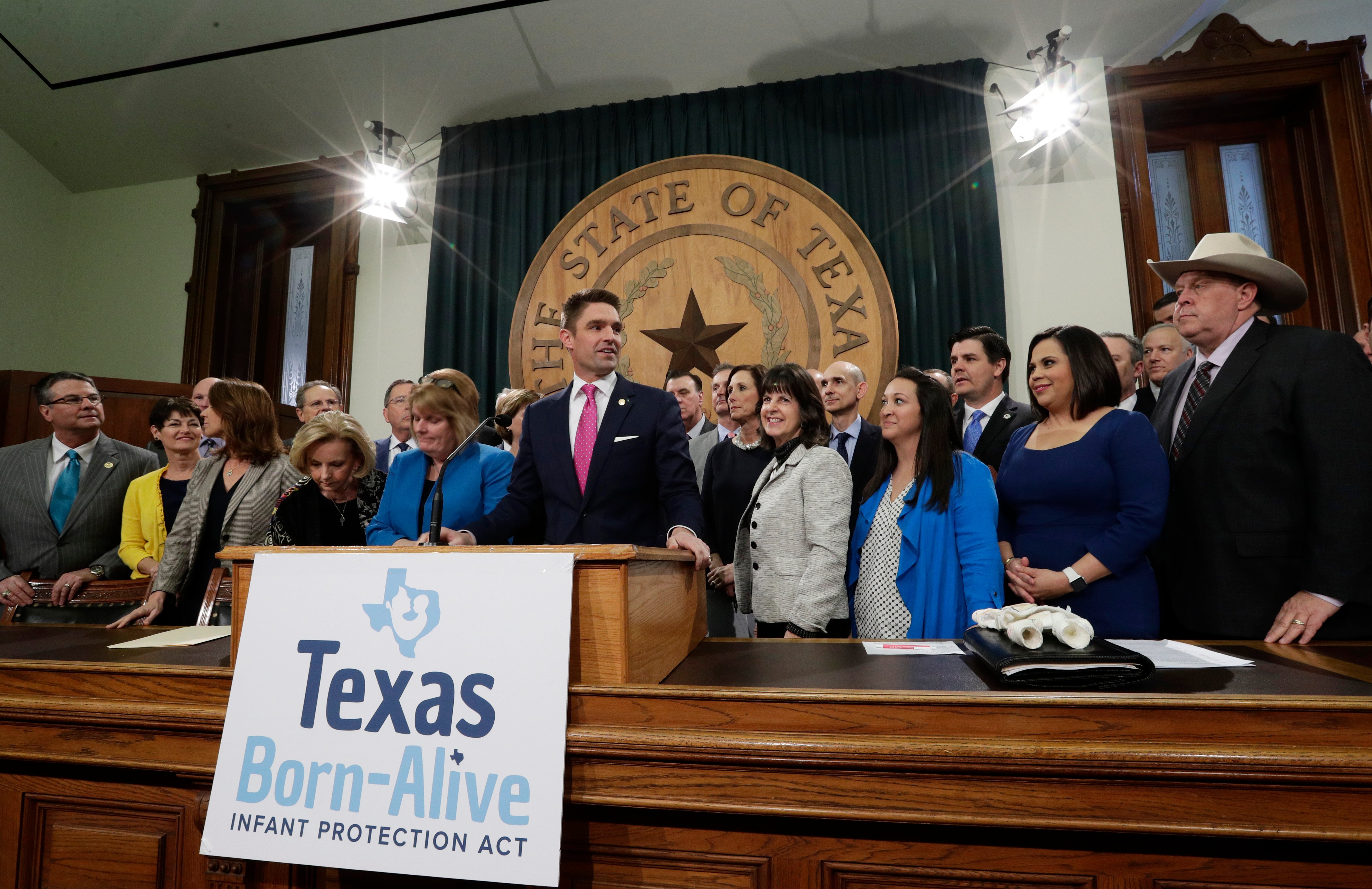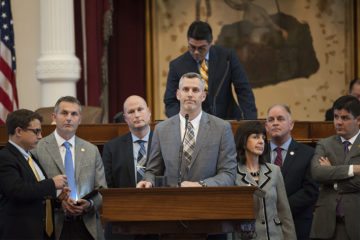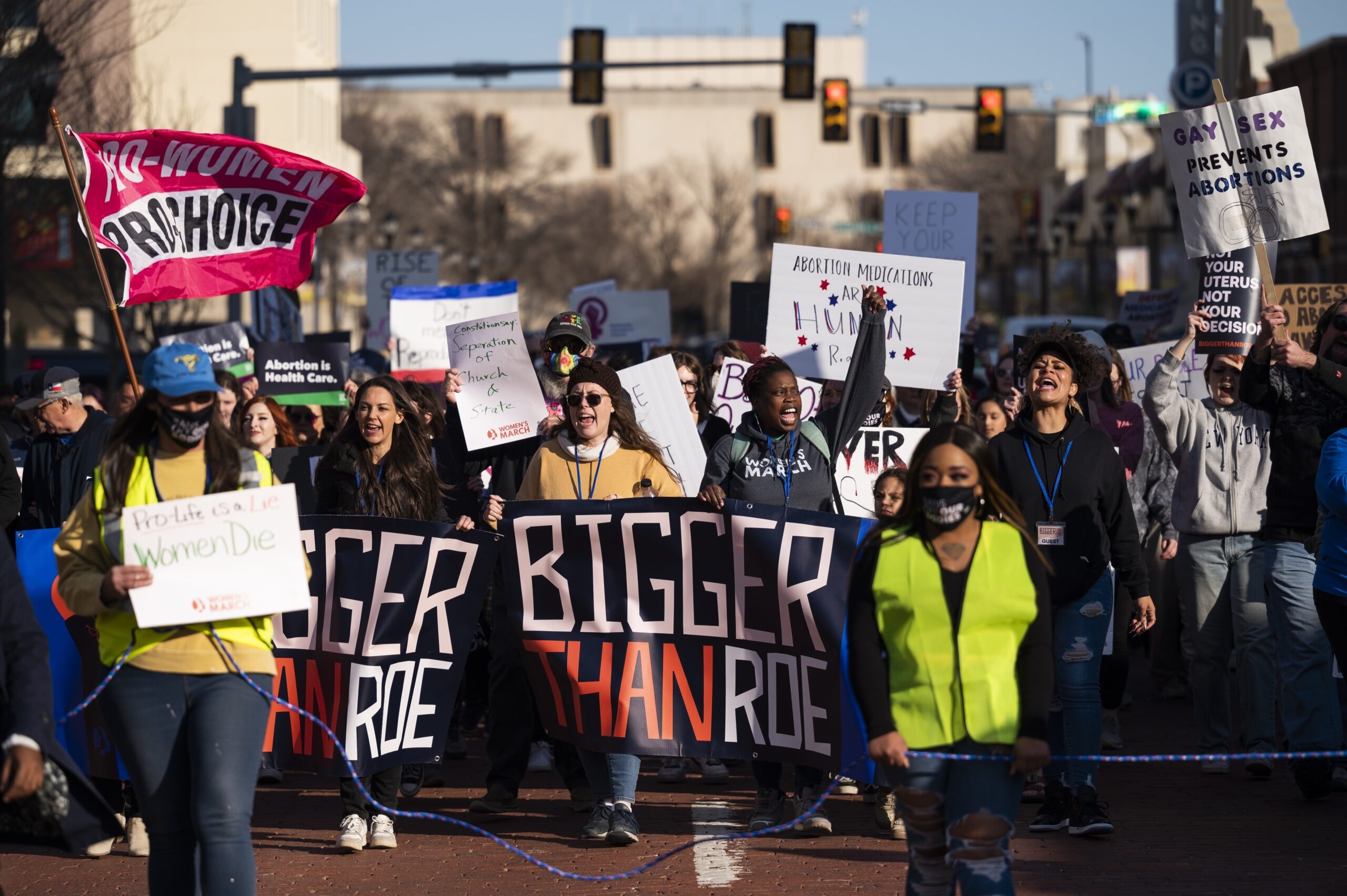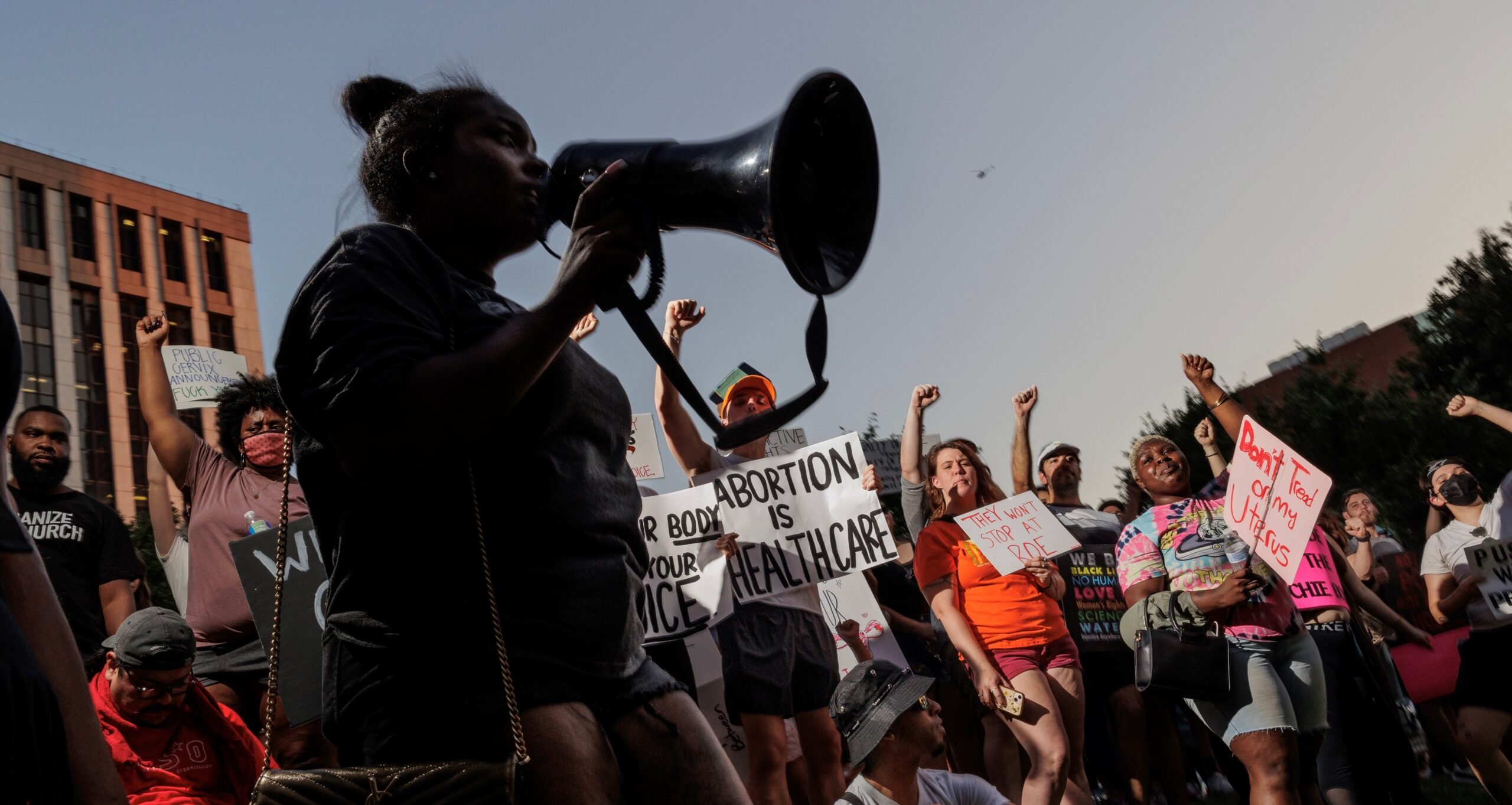
Texas Lawmakers are Promoting ‘Anti-New York’ Bills to Limit Abortions
Governor Greg Abbott said there is “growing support for infanticide.” (There is not.)

Conservative Texas lawmakers are seizing on inflammatory and inaccurate national rhetoric around abortions later in pregnancy in an effort to drum up anti-abortion sentiment and characterize Democrats as extremists who support infanticide. They point to a recent New York law that allows abortion after 24 weeks in cases where the pregnant patient’s life is at risk or the fetus is not viable, controversial comments by the Virginia governor about a bill to ease abortion restrictions and a failed U.S. Senate bill titled the “Born-Alive Abortion Survivors Protection Act.” The idea is to build support for Texas bills that women’s health advocates say mischaracterize second- and third-trimester abortions and would make already tragic situations even worse for pregnant patients.
“Our hearts are broken” by the “extreme views” of the New York State Legislature, said state Representative Matt Shaheen, R-Plano, who leads the far-right Texas House Freedom Caucus, during a February press conference.

Among the proposals is one dubbed the “Anti-New York Bill,” which would ban abortions due to life-threatening fetal abnormalities in the third trimester of pregnancy. Filed by state Representative Matt Schaefer, a House Freedom Caucus member from Tyler, House Bill 2434 is a top priority for the influential anti-abortion group Texas Right to Life. Schaefer’s bill and its Senate companion would prohibit doctors from performing abortions in the third trimester even when “the viable unborn child has a severe, irreversible brain impairment,” or “the woman is diagnosed with a significant likelihood of suffering imminent severe, irreversible brain damage or imminent severe, irreversible paralysis.” The only exception would be if the pregnant patient’s life is in danger.
Lawmakers also filed a Texas version of the “Born Alive” act last week, which would require physicians to provide medical treatment to the baby in the extremely rare case that it survives an abortion. (This is already required under federal law.) State Representative Jeff Leach, a Plano Republican and author of House Bill 16, said the “collective conscious of our nation has been shocked” by measures in other states that “equate to legalized infanticide.” Governor Greg Abbott cited concern for “growing support for infanticide.”
“Life is a top issue for us, and it’s an overarching issue. So just like we always talk about the Second Amendment, we always talk about pro-life issues.”
Opponents say both Texas bills spread misinformation about abortions later in pregnancy in order to stigmatize the procedure, intimidate doctors and confuse and shame pregnant patients. To be clear: There is not growing support for infanticide. Infanticide is illegal. Ironically, a new study from the Texas Policy Evaluation Project at UT-Austin found that Texas’ restrictive anti-abortion measures have caused patients to wait longer to get the procedure. Following the passage of Texas’ House Bill 2 in 2013, second-trimester abortions increased by 13 percent even as the total number of abortions decreased by 18 percent.
Meanwhile, just about 1 percent of abortions in the United States occur after 21 weeks — the procedures in the crosshairs of the new Texas bills. And these are generally much-wanted pregnancies that are ended because the woman’s life is in danger or because of a life-threatening fetal abnormality.
“[HB 2434], like all other anti-abortion bills, has the goal of preventing a person from receiving the medical care they have decided is best for them,” said Blake Rocap, legislative counsel at NARAL Pro-Choice Texas. It “differs only in its cruelty by forcing families in tragic situations to cause suffering rather than alleviate it with the help of their doctors.”
The measure would also ban “discriminatory” abortions based on race, ethnicity, gender, or disability; it’s unclear how the pregnant person’s motive would be determined and Rocap said this could intimidate doctors and potentially lead to a wider abortion ban.
After a poor showing in the midterms, some reproductive rights advocates wondered if anti-abortion lawmakers would back off. That hasn’t been the case at the Legislature, where more than 40 measures restricting abortion rights have been filed.
Anti-abortion legislation is “absolutely, without question” his top priority, Schaefer told the Observer, and remains a priority of the House Freedom Caucus. “It’s why a lot of us came down here. … If you don’t have life, then you don’t get to worry about property tax or school finance. Life is a top issue for us, and it’s an overarching issue. So just like we always talk about the Second Amendment, we always talk about pro-life issues.”
In previous sessions, Schaefer’s proposal to ban abortions for life-threatening fetal abnormalities was treated as too extreme even for some anti-abortion Republicans. In the floor debate over his amendment last session, one Democratic lawmaker asked: “Why should a woman be forced to give birth to a baby that will die in birth?” To which Schaefer replied: “Because it’s a person created in the image of God.”
Other bills filed by members of the far-right group this session include one to criminalize abortion, which the author, state Representative Tony Tinderholt, R-Arlington, told the Observer in 2017 would force women to be “more personally responsible” with sex. Another, from state Representative Briscoe Cain, R-Deer Park, would ban abortion as early as six weeks, before many people even know that they’re pregnant. Fifty-nine lawmakers have signed on.


